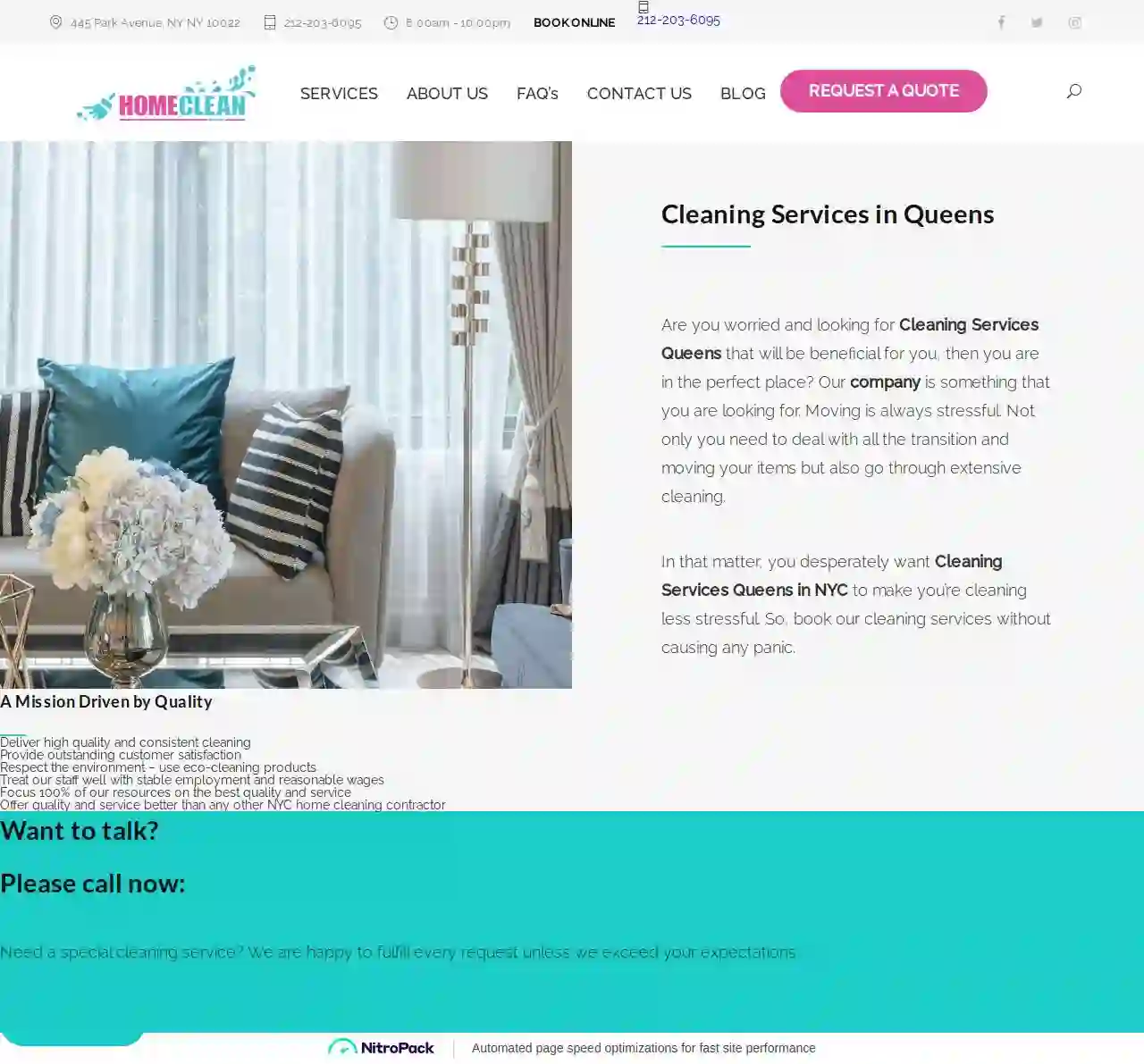Cleaning Services Hastings-on-Hudson
Top 10 Cleaning in Hastings-on-Hudson
Receive up to 3 Cleaning Services quotes for your project today! Compare profiles, reviews, accreditations, portfolio, etc... and choose the best service.

Gateway Cleaning Services
550 reviewsSuite 1, 9703 Gravois Rd, St. Louis, 63123, USGateway Cleaning Services offers premier cleaning services as part of the Titan Pest & Wildlife Solutions family, specializing in commercial and residential settings. We ensure that every space looks pristine and is conducive to a healthy, productive environment. Our mission is to provide peace of mind through superior cleaning services, enhanced by our integrated pest management and property maintenance approach, ensuring your spaces remain pristine and healthful. We prioritize our clients' needs, offering customized services tailored to their requirements. We use eco-friendly cleaning methods and products to ensure environmental safety and sustainability. We are reliable and consistent in our service delivery, ensuring our clients' peace of mind. We conduct our business with the utmost professionalism and ethical standards.
- Services
- Why Us?
- Accreditations
- Our Team
- Testimonials
- Gallery
Get Quote
Wicked Cleaning Company LLC
55 reviews123 Wicked St., Wicked City, 12345, USWicked Cleaning is a professional cleaning service dedicated to providing top-notch cleaning solutions to residential and commercial clients. With a strong commitment to quality, customer satisfaction, and eco-friendly practices, Wicked Cleaning strives to make every space sparkle and shine. Their team of experienced cleaners uses state-of-the-art equipment and eco-friendly products to ensure a clean, safe, and healthy environment for their clients. Wicked Cleaning offers a variety of services tailored to meet the unique needs of each client, from one-time deep cleans to regular maintenance cleaning.
- Services
- Why Us?
- Accreditations
- Our Team
- Testimonials
Get Quote
GDI Integrated Facility Services
4.69 reviewsSyracuse, US- Services
- Why Us?
- Gallery
Get Quote- Lu
Luciana's cleaning services
59 reviewsQueens, US- Services
- Why Us?
Get Quote 
Superior Commercial Cleaning Services
Queens, US- Services
- Why Us?
- Gallery
Get Quote
We Take Pride Cleaning Services
4.456 reviewsHempstead, US- Services
- Why Us?
Get Quote
Ron's Cleaning Service
44 reviewsQueens, US- Services
- Why Us?
Get Quote- SO
SO CLEAN NYC
4.117 reviewsBrooklyn, US- Services
- Why Us?
Get Quote 
Nadoka Luxury Cleaning, LLC
519 reviewsPoughkeepsie, US- Services
- Why Us?
Get Quote
Home Cleaning Services Queens
3.97 reviewsQueens, US- Services
- Why Us?
Get Quote
Over 60,241+ Janitorial Contractors on our directory
Our cleaning service providers operate in Hastings-on-Hudson & beyond!
CleaningMatch has curated and vetted Top Janitorial Contractors arround Hastings-on-Hudson. Find a trustworthy contractor today.
Frequently Asked Questions About Cleaning Services
- Regular Sweeping or Dust Mopping: Sweep or dust mop hardwood floors daily to remove dust, dirt, and debris.
- Vacuuming: Vacuum hardwood floors weekly using a vacuum cleaner with a hardwood floor attachment to avoid scratches.
- Damp Mopping: Damp mop hardwood floors with a hardwood floor cleaner as needed. Avoid excessive water, as it can damage the wood.
- Prevent Scratches: Place felt pads under furniture legs to prevent scratches. Avoid dragging heavy objects across the floor.
- Avoid Harsh Cleaners: Do not use harsh chemicals, abrasive cleaners, or furniture polish on hardwood floors.
- Professional Cleaning: Consider hiring a professional hardwood floor cleaning service for deep cleaning and refinishing as needed.
- Check Fabric Care Label: Always check the upholstery care label for cleaning instructions specific to the fabric. Some fabrics may require professional cleaning.
- Vacuum: Vacuum the upholstery thoroughly to remove dust and loose debris. Use a brush attachment for crevices and seams.
- Spot Cleaning: For stains, blot with a clean cloth or sponge. Avoid rubbing, as it can spread the stain. Use a mild upholstery cleaner or a homemade solution of water and mild dish soap.
- Upholstery Cleaning Machine: If the fabric is suitable for wet cleaning, you can use an upholstery cleaning machine. Follow the machine's instructions carefully and test a small, hidden area first.
- Professional Upholstery Cleaning: For delicate fabrics, deep cleaning, or stubborn stains, consider hiring a professional upholstery cleaning service. They have specialized knowledge and equipment to clean upholstery safely and effectively.
- Clean Pet Bedding: Wash pet bedding regularly in hot water to remove odors and bacteria.
- Vacuum Thoroughly: Vacuum carpets, rugs, and upholstery frequently using a vacuum cleaner with a pet hair attachment.
- Enzyme Cleaners: Use enzyme cleaners specifically designed for pet odors. These cleaners break down the odor-causing molecules.
- Baking Soda: Sprinkle baking soda on carpets and upholstery, let it sit for a few hours, then vacuum. Baking soda absorbs odors.
- Air Fresheners: Use air fresheners or diffusers to mask odors temporarily.
- Professional Cleaning: For persistent odors, consider hiring a professional cleaning service specializing in pet odor removal.
- Weekly: Suitable for busy households with children or pets, ensuring a consistently clean and healthy environment.
- Bi-weekly: A good option for smaller households or those who maintain a relatively clean home.
- Monthly: May be sufficient for individuals or couples who live a minimalist lifestyle.
- Quarterly or Annually: Can be suitable for deep cleaning or seasonal cleaning tasks.
What are some tips for cleaning hardwood floors?
By following these tips, you can keep your hardwood floors looking beautiful for years to come.
How do I clean upholstery without damaging the fabric?
Always test any cleaning solution on a small, inconspicuous area first to avoid discoloration or damage.
How do I get rid of pet odors in my home?
Regular cleaning, enzyme cleaners, and baking soda are effective methods for eliminating pet odors and maintaining a fresh-smelling home.
How often should I have my house cleaned?
You can adjust the frequency based on your needs and budget. Some people opt for weekly cleaning for high-traffic areas like kitchens and bathrooms and bi-weekly cleaning for the rest of the house.
What are some tips for cleaning hardwood floors?
- Regular Sweeping or Dust Mopping: Sweep or dust mop hardwood floors daily to remove dust, dirt, and debris.
- Vacuuming: Vacuum hardwood floors weekly using a vacuum cleaner with a hardwood floor attachment to avoid scratches.
- Damp Mopping: Damp mop hardwood floors with a hardwood floor cleaner as needed. Avoid excessive water, as it can damage the wood.
- Prevent Scratches: Place felt pads under furniture legs to prevent scratches. Avoid dragging heavy objects across the floor.
- Avoid Harsh Cleaners: Do not use harsh chemicals, abrasive cleaners, or furniture polish on hardwood floors.
- Professional Cleaning: Consider hiring a professional hardwood floor cleaning service for deep cleaning and refinishing as needed.
By following these tips, you can keep your hardwood floors looking beautiful for years to come.
How do I clean upholstery without damaging the fabric?
- Check Fabric Care Label: Always check the upholstery care label for cleaning instructions specific to the fabric. Some fabrics may require professional cleaning.
- Vacuum: Vacuum the upholstery thoroughly to remove dust and loose debris. Use a brush attachment for crevices and seams.
- Spot Cleaning: For stains, blot with a clean cloth or sponge. Avoid rubbing, as it can spread the stain. Use a mild upholstery cleaner or a homemade solution of water and mild dish soap.
- Upholstery Cleaning Machine: If the fabric is suitable for wet cleaning, you can use an upholstery cleaning machine. Follow the machine's instructions carefully and test a small, hidden area first.
- Professional Upholstery Cleaning: For delicate fabrics, deep cleaning, or stubborn stains, consider hiring a professional upholstery cleaning service. They have specialized knowledge and equipment to clean upholstery safely and effectively.
Always test any cleaning solution on a small, inconspicuous area first to avoid discoloration or damage.
How do I get rid of pet odors in my home?
- Clean Pet Bedding: Wash pet bedding regularly in hot water to remove odors and bacteria.
- Vacuum Thoroughly: Vacuum carpets, rugs, and upholstery frequently using a vacuum cleaner with a pet hair attachment.
- Enzyme Cleaners: Use enzyme cleaners specifically designed for pet odors. These cleaners break down the odor-causing molecules.
- Baking Soda: Sprinkle baking soda on carpets and upholstery, let it sit for a few hours, then vacuum. Baking soda absorbs odors.
- Air Fresheners: Use air fresheners or diffusers to mask odors temporarily.
- Professional Cleaning: For persistent odors, consider hiring a professional cleaning service specializing in pet odor removal.
Regular cleaning, enzyme cleaners, and baking soda are effective methods for eliminating pet odors and maintaining a fresh-smelling home.
How often should I have my house cleaned?
- Weekly: Suitable for busy households with children or pets, ensuring a consistently clean and healthy environment.
- Bi-weekly: A good option for smaller households or those who maintain a relatively clean home.
- Monthly: May be sufficient for individuals or couples who live a minimalist lifestyle.
- Quarterly or Annually: Can be suitable for deep cleaning or seasonal cleaning tasks.
You can adjust the frequency based on your needs and budget. Some people opt for weekly cleaning for high-traffic areas like kitchens and bathrooms and bi-weekly cleaning for the rest of the house.